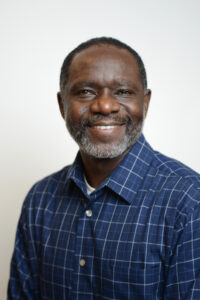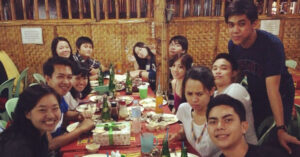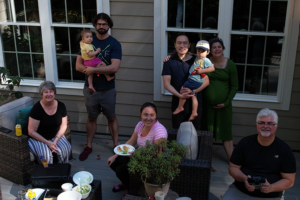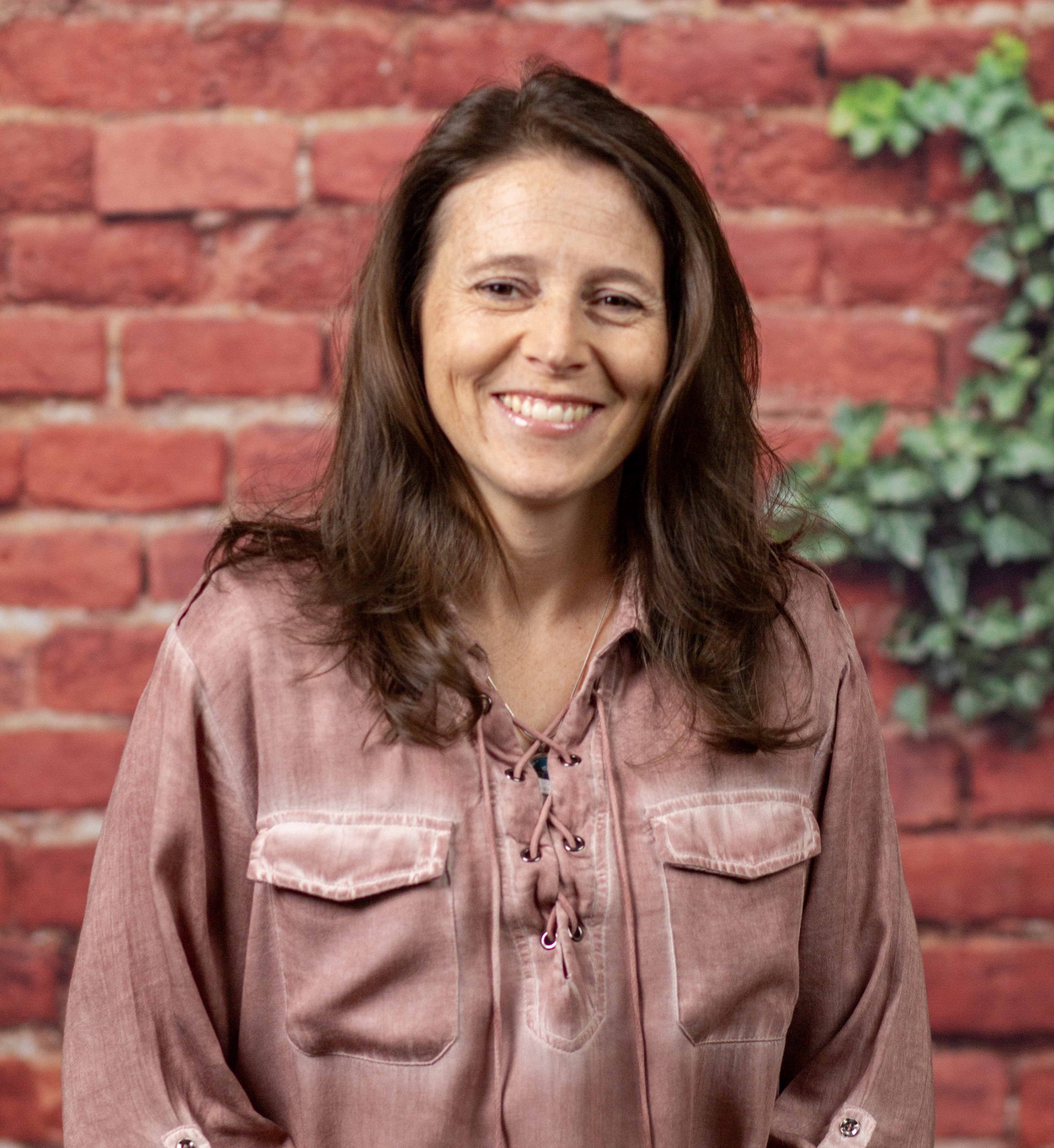Culture Creation w/ Julie Frantz
Welcome to the GC Podcast. A podcast to help you develop into the healthiest ministry leader you can be by sharing practical ministry experience.
Cara: Hello friends, and welcome to this episode of GC Podcast. This podcast is devoted to exploring best ministry practices in the context of Grace Communion International churches.
I’m your host, Cara Garrity, and today I’m blessed to interview Julie Frantz, pastor of Grace Communion Cincinnati East and West, wife and mom of four. She loves New Mexican food and adventure in all its forms, good, bad, and ugly.
Julie, thank you so much for joining us today. It’s so good to have you on the GC Podcast.
Julie: Thank you, Cara. I’m excited to be here.
[00:00:49] Cara: Yes, and I’m looking forward to the richness of this conversation today. We’re going to be talking about creating culture in our local congregations. The first thing I want to ask is when we talk about the culture of a local congregation, what does that mean to you?
[00:01:06] Julie: When I think of the culture of a local congregation, I think about people—people who have shared life and shared belief and ultimately, we hope and we look for a shared mission and a people that shares their identity in Christ where we together grow and together become who Christ created us to be and who we are in him.
It’s this people coming together unified by Christ. And we develop new rhythms together, a rhythm directed by him and led by him, and we discover as we journey with Christ what those rhythms look like and how those rhythms are expressed within the body. It becomes a beautiful thing—a little bit of chaos and a little bit of beauty and a lot of grace.
[00:02:06] Cara: Yeah, absolutely. I love how you’ve described that. It is a beautiful thing, chaos and beauty and grace and all. This year on GC Podcast, we have explored a lot of different angles on rhythms that are part of healthy church. You mentioned that as part of culture too. So how do our rhythms contribute to creating culture and in the maybe reverse order? How does culture contribute to the rhythms we choose to create?
[00:02:41] Julie: Yeah. Our rhythms within the body of Christ really are part of our discipleship path. It’s learning that new rhythm of who Christ is and who we are in him as a body. And that’s a timely thing.
It takes time and patience and a lot of grace for one another. But it is part of our discipleship process with the Lord. And so that part of becoming and having a consistent rhythm, that’s totally led according to the Lord’s timing. We have a little bit to do with that as far as the consistency and participation.
But really that’s led by the Lord. And what’s interesting about our rhythms and culture is that culture can absolutely challenge the rhythms of a church. And cause us to rethink some of those rhythms and possibly respond differently as culture transforms around us.
But our rhythms are really not controlled by society, but instead led, maintained by the leading of the Holy Spirit. And even though the culture can make us rethink those and make us consider how we participate in those rhythms led by the Holy Spirit, those rhythms are the Holy Spirit’s leading. The culture doesn’t determine how the church lives that out.
And can’t and shouldn’t determine how the church lives that out.
[00:04:26] Cara: Yeah. And I love that you’ve highlighted that those rhythms, in the context of church community and the formation of the culture of church community, those rhythms are formed and led by the Spirit, by who God is.
Because we were stepping in time with his rhythms, with his ways. And so really, we’re being shaped and formed into the culture of his kingdom and who he is versus—and I think that comes in line with what you’re saying—versus all the various different pulls and pushes or different ways of thinking. Culture can come in a thousand different forms, but the rhythms that we’re trying to sync up to are the rhythms of God’s culture that he has for all of his people.
That’s beautifully said, Julie. Like I said, or I just mentioned, culture can come in a lot of different forms, and we’re on this journey that you’ve mentioned of seeking it, syncing up with those rhythms that are led by the Spirit and not necessarily whatever we want to do.
And so, I say this quote unquote church culture—things like church “in speak” or those things that might make us feel like, oh we’re an “in” crowd, or you have to belong to this church club. Sometimes that form of church culture can be a barrier to actually living missionally because it makes this dynamic of an insider / outsider.
But in contrast to that kind of kingdom culture when we’re embracing that everyone belongs. What are some of those ways that as a local congregation, can we check in with ourselves and assess what kind of culture are we cultivating here in our local church community?
[00:06:41] Julie: It it’s interesting this question made me think about a book that I recently read called Positively Irritating by John Ritner, and I think a lot of GCI members are familiar with him. And he’s quoted saying, “We must stop merely inviting the world to church and instead be the church for the world.”
And I think that a lot of culture with church has been trying to get others to come into a space. And when we have the intentionality of discovering who God is, and discovering who we are, as we have our being in him, we start paying attention to some of the things, some of the rhythms that Christ himself had. And we see Christ going. We see Christ going into homes, sitting with not-yet believers.
And when we see that rhythm, and we discover that we have our being in Christ, we can see ourselves a little different than just a place that we invite others to, but becoming a people that go into a world and sit with others where they’re at. And really that church culture kind of fades away when you think about that. We stop being that in club and that changes as we go out and are willing to sit with others. And where we are willing to be the church every day into a space that’s not our own and sit with Christ.
I think that’s really where that church culture, that “church speak,” changes, when we really discover identity in who Jesus is. And that challenges a lot of what church has been and can be.
That place of “come to us, come to our service, come witness.” Jesus actually asked us to witness, asked us to go, and you don’t become this exclusive club if you’re going out into the community and sitting with others.
You become a place that’s very inviting into relationship and inviting into a relationship with Christ. As they sit with us, the kingdom is shared with others. It’s not just a “come to this place and experience the kingdom.” It’s we go and share the kingdom.
So, we have both cultures, I would say, here in Cincinnati. We’re learning. We have a long—and I think most churches may have a long history of just inviting in and not 100 percent understanding the sent-ness that we have as a church, as a body of Christ.
And so, we’re learning that rhythm. I’m not sitting here as an authority on that at all. I’m in that process of learning that rhythm as God is so gracious. and patient and willing to consistently invite and empower us to go sit with neighbor, to sit with strangers, to sit with community, and to be the church. This is a work in progress. And I thank God that he is willing to work and thank God that he is willing to be so gracious with us as a body of Christ, to give us opportunity.
And as we take that opportunity, as we participate in that, what a blessing it is for us!
[00:10:40] Cara: Absolutely. Oh, amen. And a couple of things that you said really jumped out at me. First, you mentioned noticing the rhythms of Jesus. And so again, coming back to this reality of whose rhythms are we being drawn into and whose rhythms are we being captivated by and choosing really to be formed by and to be shaped by?
And then you mentioned, as a people, that you’re being shaped into that sent people. That comes back to even that first question I asked you about culture, you said, you think of people, right? And we don’t have culture without people.
I really love that you mentioned that because it’s not just about us all on our own, right? But it’s about what is God doing with us together as his people, as he shapes all of us together through these rhythms. So, I really loved how you mentioned that, that dynamic of culture, that as we see and are swept up in those rhythms of Jesus, that we as a collective people are changed and are shaped.
And I think that really even connects to that previous question: how do rhythms contribute to creating culture and how does culture contribute to the rhythms we choose to create? Even that example that you gave of it’s a journey and it’s a process, I feel like speaks to that because when you choose to say, yes, Jesus, show us these new rhythms and it’s a process, then as a people, you’re transformed by him. And then your culture shifts and is different. And so, your desires for his rhythms change. And so, you’re more eager to choose his rhythms.
And it’d be like, “oh, we don’t want this inclusive, exclusive; I’m the insider; you’re the outsider; you come to me” kind of thing. And so, it has this beautiful, transformative, cyclical thing that God’s doing that I hear you describe, even just in Cincinnati, in the church community there.
That’s an incredible thing that God is up to, transforming you all and bringing you deeper into his rhythm. So, thank you for sharing that.
[00:13:11] Julie: Yes. And I think we need to be unafraid to do those temperature checks of our congregations, as a people. And say, what is our rhythm right now? What does somebody who isn’t a part of this, what would they say? What do they see?
And I think being willing to ask some of those questions and willing to hear the answer. All right, you don’t attend our church, what do you see? What do you see? You’re not a member of our church, what do you see? And be willing to ask the neighbor, what is your conclusion on who we are as a people?
And although that’s not going to give you a 100 percent accuracy of all things, that’s going to give you a perspective. But I want to know what my neighbor who is not-yet a believer of Christ thinks of the body of Christ that is next door.
I want to know, and Lord, help me to be humble to receive that truth. And it might be hard, and I pray that is a changing rhythm, that we will—as we grow in that mission of joining God—that perspective will change.
And I think that probably depending on who you ask, you might get a little bit different question, but it gives you a gauge to say, what is the message? What is the reality of us being the church in this community? What does that look like to the people that aren’t of the body of Christ?
Because we could always look at it and we have rose colored glasses. Oh, we’re doing pretty good. We’re doing this. Check. We’re doing this. Check. And we can get in that rhythm of I’ve got an outreach going. Check. I’ve got discipleship. Check. I’m doing a good worship service. Check.
And you can make it this checklist and that’s really not what Christ has invited us into, he’s invited us to join him in mission. And that’s relational. That’s not a checklist. And it’s a rhythm set by him. And it’s the church leaning into that and accepting God, you are God. This is your church. You love these people. Give us the heart that you have for these people.
Help us to participate in that and that’s not easy. But it is such a beautiful place to be when we allow that to be who we are as the church. So, I think it takes some hard conversations, but it’s not to tear us down, but to build us up and to make us aware sometimes of what reflection we really are giving as the body of Christ.
[00:16:07] Cara: Julie, that’s such a good word. That is a very practical way that we can, as a community, do that temperature check. How are we growing and being shaped in our rhythms and in our culture? Because I even think culture is something that’s experienced, right? And when you’re knee-deep in your own culture, sometimes there are things that you become so accustomed to that you don’t even necessarily have the awareness to name it.
And so, to ask somebody else, what do you experience when you step into our community, into our church, into our group of people? What is that experience like? And to hear that from your neighbors—is what they described, does it sound like they experience a kingdom culture? What aspects sound like that? What don’t?
I love to travel. And that’s one of the things I love is experiencing different cultures and what aspects of it are—I find God in pieces of all different cultures. You just experience it in a way, when you cross into a culture that’s not your own, that sometimes is hard to explain. Or maybe somebody wouldn’t even be able to describe their own culture because they’ve just lived it and been in it for so long.
Or somebody is able to point out about my culture—I’m from Boston. So sometimes people are like, hey, and I’m like, oh, I didn’t even know that. I didn’t know we did stuff like that. Or we said that like that or whatever. Because it’s something that, that you just experience.
So, to get that perspective, I think that’s a really meaningful thing. And like you said, it’s not to tear us down, but to build us up. Because yet at the end of the day, what do we have to lose?
Jesus is still Lord. And all that might happen is we are able to see something where we can invite him to shape us more deeply into who he is and who he’s called us to be as his church. Yes. Oh, that’s so good, Julie.
[00:18:18] Julie: And I think that just realizing as a body of Christ, the totality of our following Jesus is not summed up on a Sunday service. That’s not the totality of our Christianity, of our faith in Christ. It is not this one day a week that we go to, and we come together and then we go out and nothing matters.
It’s that’s the church is called to be the church, right? And that the church exists day in and day out as we go. And we need to be aware of that reality of who we are in Christ and that can’t just sit inside a church building on Sunday. We want to gather; we want to have worship. We want to have fellowship; we want to celebrate what God is doing, praise his name, worship our Lord. But we also want to be the church every day as we go.
And just recognizing that reality and allowing our hearts to shift from an attender to a participant, and we have a lot of church attendees. We have fewer church participants, but my hope and my desire is that the work the Lord has started here in the congregations, that he’s going to complete that. I have a pretty good resource that tells me he’s going to complete that.
I’m just basing this on that God is working and that he will continue the work he has started, and he is patient and kind and graceful. And he knows where we’re at, and he knows the steps that we struggle to take, and he is willing to walk that journey with us to take those steps.
And as the church, that we would be in a mindset of, this is your church, Lord. I am the church; I am as I go, Lord. Would you, Lord, work through me? Would you show me? Would you guide my steps? Would you give me the words? Would you help me to be the church? He is faithful in that request, even when we don’t know what that looks like, even when we’re afraid to say anything, even when we are afraid to be on that journey with him.
We have to remember it is our faithful God that we are on the journey with, the one who is faithful in his very being, even when we are faithless. And so, I think it’s that mindset of, I’m not an attender of this church. I am the church and I have been sent—just that shift. And that takes time.
Each of us have probably been in that place of, I attend this church. But to shift into that being in Christ and being the church, that’s not easy. But I am convinced that we do not go alone in that, and I am convinced that it is worthwhile.
[00:21:35] Cara: Yes. Oh, that’s just so beautiful, because that gets beyond even what you said earlier just the checklists, right? But it gets into: who are we really in Christ? What is he really drawing us into? Who has he called the church to be?
I love that. And that’s the thing I think when we’re shaped, allow ourselves to be shaped by his rhythms. And it’s more than just, like you said, we show up to church on Sundays and that’s it, but when we’re drawn into his rhythms and his culture. When I think about, as you were saying, when we think about “I am the church instead of just, I go to church.”
The silly parallel that came to mind is I’m not Bostonian just when I’m in Boston, right? Like I’m sitting here in Charlotte and I’m still from Boston because that’s my culture. That’s who I am. That’s what raised me, right? And so, what if we thought the same way about our identity in Christ, about who we are as a church?
It’s not that we go to church, but we are the church. And that’s true wherever we go, every day of the week, like you said, because it’s not just that we go to church or this checklist, but we are the church. That’s our culture. That’s who made us, who raised us. That’s who we are as people. I think that’s a beautiful thing.
And like you said it’s a faithful God. He’s a faithful God who’s bringing us on that journey. So that’s incredible.
[00:23:13] Julie: You think about cultures, and I think that you have been able to step into and experience various cultures. I think one of the coolest things of going into a different culture is the joy of the people to share that culture with you.
I have sat with so many different friends who are from Nigeria or Israel or England and whatnot and they’re so excited to share with me their favorite dishes. Hey, this is something that I grew up with and I, Julie, want you to try this.
And I love to adventure with food. So, to me, that’s a grand adventure to sit at a table and to share the cultural food of a friend. And you think of the excitement that we approach sharing culture with others as the church, believe it or not, with that excitement and more we can share the kingdom of God.
We can sit and share, excited for others to experience and taste and know.
[00:24:21] Cara: I don’t even have anything to say to that. That’s beautiful.
[00:24:27] Julie: I have a lot of food analogy in my way of thinking. I like food a lot, to me that’s like a happy place, yeah, I love it. I love it. The Bible does say, taste and see that the Lord is good.
[00:24:41] Cara: So, I see nothing wrong with that.
And we’re talking about this growth and this process that God is taking us on too, as we shift and come into his rhythms and to embrace his church culture versus maybe our versions of church culture that can be exclusive or whatever else we might make of it.
But I’m wondering, what does it practically look like to make decisions that shift towards this vision culture, this kingdom culture?
[00:25:18] Julie: I think first and foremost we have to realize that because we have our identity in Christ that’s where everything else flows. And this is not something that we do apart from God, and this is not something that we become apart from God.
It is all centered in him. There’s a beautiful book that I am actually journeying through [with] the leadership here in Cincinnati. I’m journeying with them through this book. And it has been a blessing to me. It just allowed me to sit in that place of just deep gratitude and a place of just embracing the sent-ness that God has given me as his child and as part of the church.
And the book is Overflow, and it’s written by Michael Reeves. And he says something in there that’s stuck with me, as the body of Christ, like a place where we start. And this is what he says, “Mission for us is about entering into the gift of life before we have anything to give away.”
When as the body of Christ, we think of joining that mission that Christ has for us, the first part is entering into that gift of life in Christ. That’s the first part. That first part of, you are my God, and I am your child, and my life is in you.
And that’s not a lot of us doing. That’s a lot of us sitting and receiving what the Lord has given. And it’s from that place that everything else flows. And so, it’s really important for the church and the body of Christ to receive from the Lord who they are, to receive the gift that he has given, to allow God to love them, allow God to speak truth, allow God to speak their identity.
And we start from there. And I’m going to quote Overflow one more time from Michael Reeves. He says, “Mission is the overflow of love from the enjoyment of divine fellowship.”
And so, from that place of entering into life with Christ, everything else flows from that. And so that’s where we enter into a vision culture set by the lead of the Holy Spirit, a place where we identify fully in who Jesus is, knowing that we go forth by his strength alone, by his wisdom, led by his will.
And so, we take all of this burden and things that we can put on ourselves—the insecurity of having to perform or having to say the perfect thing—and we step into a place of him being our source and flowing from that. And that changes it all. It changes everything.
It takes it off of us, and we participate in the joy of relationship with God. And mission becomes us telling others about this one whom we love and sharing that. But we can’t enter into this vision culture without first receiving from Christ.
[00:28:45] Cara: Amen. I think that’s foundational. And listeners, I think that’s not to be missed, but that’s where we start because again, otherwise we’re making and nurturing culture after our own image.
And we’re going to do a little bit of that anyways, right? We’re not perfect. We’re still on the side of eternity, but as the church our purpose is to be grown and formed and shaped after God’s image and to bring that on mission into the world. And so, I think that’s really, Julie, such a powerful word, but that’s where we start. It has to be where we start.
[00:29:33] Julie: And if we jump into mission without that, then we end up with a bunch of people who are exhausted and are spinning the wheels kind of thing.
And you also struggle for participation because it’s not out of relationship with Christ that the mission goes forth. It comes out of our own will and our own strength. And believe it or not, we just don’t have that strength. We don’t have that strength to continue mission to a world. We just don’t have it.
And we weren’t meant to have it apart from God. We weren’t meant to do this journey apart from God. And so, when we go and we try to do that, it doesn’t usually work out very well. And you end up with a lot of burned out participants and it doesn’t flow from our being in Christ. And it’s so important for us as churches to recognize that initial foundation has to be there before we jump into all of this.
And that’s why it can’t be a checklist. It has to be led by the Holy Spirit. Our churches naturally will participate in mission as they receive from Christ their identity and as they discover who our God is, and they join what he is doing. It just takes so much pressure off of the individual too, and it takes the pressure off the church as a whole.
We haven’t been asked to do anything that Jesus isn’t leading, and we haven’t been asked to do anything that he isn’t already giving the strength for.
[00:31:20] Cara: That’s really good. And I’m wondering on that foundation, something that just came to mind that I’m wondering about is one of the things that I think is so beautiful about who our God is. He never runs out of—oh, what’s the word that I’m looking for? He’s just so creative, and expresses who he is in so many different ways and in diversity and in just so many different flavors, right? Even to come back to that food example, there’s just so many ways that who he is can be expressed because he’s just so full and so rich and never ending.
And so, it makes me think about, on that foundation, there are a lot of ways that different flavors or different nuances that a local church’s culture can take shape. And I like to talk about that when we talk about contextualizing local churches. Sometimes I really like to say, what’s the flavor or the personality of the local church on that foundation that you just described.
And then I think about too, when we talk about contextualization, you mentioned earlier, the larger culture doesn’t necessarily dictate what rhythms the church is formed by, but it can be something that we consider, as we think about our rhythms and do that.
And I think that’s part of contextualization, right? Our God is an incarnational God. He calls us into incarnational ministry, a sent ministry. And so, I’m just wondering, what does that look like? Or can it look like as a church discerns, by the leading of the Spirit, its own flavor and contextualizes its unique personality and grows its unique culture in its specific context that God has brought it to?
[00:33:30] Julie: I think it begins with humility and recognizing that God has sprinkled our churches with diversity for a reason and each church does not exist as a carbon copy of the other. I have these two churches in Cincinnati, and they’re very different from one another.
They’ve been sprinkled differently with the diversity that God has placed within our body and also within the community. And we don’t need to approach that diversity as something to eliminate, but something to embrace and something that we rejoice at the diversity that God has given us in culture and in different races and the rhythm of the community that we’re in.
You recognize sometimes people do things differently and that’s where the humility comes of being willing to consider the giftedness that God has brought, the diversity that God has brought. And ask the Lord, how do you see this being expressed? How does this sprinkle our ministry with that goodness? How are you testifying through this circumstance, through this difference that we have here? And just being willing to have that conversation and allow the cultural beauty of your members and of your community to be expressed in the ways that we participate with Christ.
I think sometimes we try to make little carbon copies of each church, and it’s okay this is what church looks like. I think it’s bigger than that because God has created such diversity. It’s not something that we avoid, or it’s not something that we try to change, but it’s with our expression is the body of Christ that diversity is a blessing. That diversity is something that will add season to our community.
And so, if we look at each member as a seasoning that comes together to make that full taste of the kingdom. And it really begins in the thinking of who we are, trusting who God has created us to be, trusting that each member has been gifted according to the Holy Spirit, and this is a part of who we are as a church to the community around us, embracing that and allowing God to lead that expression.
So, I’m not sure if I’ve answered the question quite well, but I think it’s in embracing of this as a gifting from God. And it does not affect the unity that Christ brings. It actually seasons.
[00:36:44] Cara: Yeah, I really like that image of each person is a seasoning of the taste of the kingdom. Because I think that’s an important thing for us to think about when we’re looking at what are some of the healthy rhythms that we can be embracing by the leading of the Spirit that help us to develop a healthy culture as a local congregation, that doesn’t necessarily lead us to, like you said, those carbon copies or a monoculture across the board. But healthy rhythms and healthy culture can look completely diverse while still being built on that foundation of who Christ is and who we are in him because he’s already shown us he’s such a creative God that has created that diversity
And I loved you use that word with. That’s so good. That’s so good.
As we’re coming up on the end of our time together, Julie, what final words of encouragement would you want to leave with our listeners?
[00:37:45] Julie: I would encourage each person in each congregation to trust what God is doing and to know that he is doing something. Our God is not absent in the world. He is actively working, and he is actively inviting us as the church to join that. You know sometimes, we are uncomfortable with that lead. If we would embrace, as a body of Christ, speaking of Jesus in the way that we care for our neighbors and the way that we invite people into our homes and the way that we walk through the neighborhoods and interact. If we would practice speaking of Jesus, and I’m not—sometimes it does look like it verbally sharing the gospel—but so many times it’s in the actions and the way that we approach others and the way that we are willing to listen to hard things, that we are willing to stand unafraid in the brokenness of the world around us.
We have a foundation that we can trust. And so, I just would encourage us to be unafraid. I was recently going through Acts with my teenagers, and we’ve been reading this together. And we were reading about the disciples going and the Sanhedrin council like holding them for a while then letting them go. And they made some threats of, hey, if you keep talking about Jesus, we’re going to come take care of this.
And they go back to the other believers, and they pray. And their prayer is so significant to me! I think as a church, if we just remember this prayer they prayed—and I’m paraphrasing, I’m not reading this verbatim—they didn’t pray that the threat would go away or that God would take away the trial or that God would hold their enemies back or anything of that sort.
They asked the Lord, hey, consider what’s going on with us in this circumstance. And they asked him to give them boldness to continue to witness. And so that would be my prayer for us as the church when we face things that are hard and things that are uncomfortable and things that are sometimes scary to us.
And yes, the world, stuff that’s going on, it can feel very scary. But that we would stand, and we would continue to pray that, Lord, you see what’s going on. Give us, the church, the boldness to witness. Help us, Lord, because we are afraid at times. We are scared to participate. We do allow our fear to stop us so often, but Lord, give us the boldness to speak Jesus to this world and to share what you have given us.
[00:40:44] Cara: Amen. Thank you so much, Julie, for those final words and for this very full and rich conversation. I know that our listeners will get a lot out of it.
But before we finally close this episode, as is our tradition, I do have a couple of fun, random questions for you. And whatever first comes to mind is the right answer.
Okay. Are you ready?
[00:41:12] Julie: Ready or not, here we come, let’s go.
[00:41:15] Cara: That’s right. If you had to be a dinosaur, what kind of dinosaur would you be?
[00:41:21] Julie: How many dinosaurs do I know? You know what? I am fascinated by sharks in like a very real fear, but like a huge respect. So, if this existed and I think there’s evidence it did, the Megalodon.
Here we go. Yeah.
[00:41:38] Cara: Okay. Yes. Very good. Very good. Now I’ll have to go Google what that looks like.
[00:41:45] Julie: A really big shark.
[00:41:47] Cara: Okay. That is very scary. All right. When you’re out and about karaoke and what’s your go to karaoke song?
[00:41:57] Julie: Oh! Brown Eyed Girl.
[00:41:58] Cara: Oh! That’s a good one.
[00:42:01] Julie: It’s the only one I know the words to, and I don’t have a voice that can sing and so that’s not one of the giftings God has given me, but I can let loose and enjoy that song. Yeah.
[00:42:16] Cara: I love that. Grew up on that song. If you had a late night talk show, who would your first guest be?
[00:42:24] Julie: I think I would bring Peter in. I relate with Peter. He is so eager to participate with the Lord, and completely, at times, unaware of all the ways he’s going the wrong way. And I’m like that. I’m like, I want to participate with you, and yet, I don’t know how. And it’s like I just want to, I want to go, and I want to scream from the mountaintops and yet I misstep so often. And I just think that would be a fun conversation because he experienced those things and yet he experienced the grace and restoration of Christ.
And yeah, I just, I think he didn’t give up. He didn’t stop even though being rebuked by Jesus would be really tough to like that would be hard to receive. He continued and I just, I respect that, and I think he would be fun to talk to about that.
[00:43:22] Cara: I agree. I agree. All right. What is the funniest thing that has happened to you this week?
[00:43:31] Julie: I don’t know if you would find this funny, but I laughed so that I didn’t cry. I was at home, and I was getting my sugar down from above my stove and somehow—I live in a house of six and I’ve got teenagers and whatnot and I’m not throwing any blame anywhere, but someone didn’t put the lid on the sugar.
So, when I grabbed it, it slipped, it fell and I had about a pound of sugar in my kitchen and I just started laughing because I’m like, I’m going to cry if I don’t laugh.
[00:44:00] Cara: Yes.
[00:44:05] Julie: And thank God for the vacuum cleaner because that helped the clean up a lot better. So yeah. I laughed and was like, dang it. All right, here we go. We got to roll with these things sometimes.
[00:44:16] Cara: You chose to make it funny. I like that. Yeah.
[00:44:19] Julie: Yes.
[00:44:24] Cara: All right. And last question. Since we learned that you’re a bit of a foodie, what is a food that you really want to try that you haven’t had the chance to yet?
[00:44:35] Julie: I have heard a lot of stories of Scottish food and some people have said it just doesn’t have a lot of flavor and things like that.
And I’m thinking I want to go, and I would love to just sit and [say] throw your best dish at me kind of thing. I have never tried any Scottish food. So, I’d like to. I think Scottish people are amazing, funny. I love their accent and I just want to. That’s a culture I don’t know very much about, and I would love to just experience it. I think that begins with some food sometimes.
[00:45:10] Cara: Oh yeah. Always got to start with the food.
Julie, thank you so much for joining us today. It was a wonderful conversation, and I know our listeners are going to be very blessed. I would love to ask you to end our episode today with praying for our churches, pastors, GCI.
[00:45:33] Julie: Absolutely.
Almighty and gracious Father, we thank you, Lord, that as we gather now, Lord, you are with us. May we know that in the depths of our souls. Lord, we thank you that in this life even when we can struggle and stumble, Lord, you are so faithful.
Help us to remember that as we, as the body of Christ, seek to participate with you. We seek to be the church, and Lord, we don’t always know what that even means. We can have this box and this idea, but Lord, it is your desire, your will, your vision that we seek.
I pray, Lord, that you will help us to lay aside all of our “what that looks like” moments, and to embrace, Lord, what you are leading each and every one of us as a body of Christ.
Help us, Lord, to be courageous, as the early church prayed. Lord, I pray the same for us. I pray, Lord, that we will be courageous and that we will be bold and that we will not be deterred by the things that are scary and hard in this world. But, Lord, that we will have the boldness to continue to share and testify and speak of you.
Lord, you have been so patient and kind, your grace is abundant, help us to know that grace in each and every moment, help us to have that grace for one another, and help us, Lord, to function and to go forth out of our relationship with you, that we will know our strength, we will know our very being is in you, Christ, and so we just thank you, Lord, and just abundantly thankful and grateful, Lord, for You being our God and you calling us into a mission, Lord, that you provide the strength and the resources necessary for.
Dad what a wonderful place it is to be your child and to be loved by you. Help us, Lord, to participate in every way that you give us and every invitation. I pray, Lord, that we all have the courage and boldness to say yes. Help us to have the grace as our churches learn and grow and as our rhythms change.
And as we learn new rhythms, help us to not hold onto things of the past that may be holding us down from stepping into this place with you. Help us to release and to boldly and humbly. Come, Lord. Thank you, God, that you invite us day in and day out. And in Revelation, where it says at the very end that the Spirit says, Come, and the bride says, Come.
Lord, we are the bride. Help us to say, Come. Help us to testify faithfully every day as the church. Lord, thank you. Your grace is abundant. And it is in Jesus name that we pray. Amen.
[00:48:24] Cara: Until next time, folks, keep on living and sharing the gospel.
We want to thank you for listening to this episode of the GC Podcast. We hope you have found value in it to become a healthier leader. We would love to hear from you. If you have a suggestion on a topic, or if there is someone who you think we should interview, email us at info@gci.org. Remember, Healthy Churches start with healthy leaders; invest in yourself and your leaders.



 As a child, my parents never celebrated Christmas, therefore my understanding of Christmas was influenced by my surroundings. Christmas was about lights, gifts, parties, time off from school, but never about the Bethlehem miracle where the incarnate Son of God becomes one with us in Christ Jesus. As my understanding of the Christmas miracle expanded, the Incarnation became very meaningful.
As a child, my parents never celebrated Christmas, therefore my understanding of Christmas was influenced by my surroundings. Christmas was about lights, gifts, parties, time off from school, but never about the Bethlehem miracle where the incarnate Son of God becomes one with us in Christ Jesus. As my understanding of the Christmas miracle expanded, the Incarnation became very meaningful. For me, I love that the Incarnation expresses God’s confidence in his ultimate plans for creation and humanity. When Jesus Christ, the second person of the Godhead, took on human form, God himself took humanity into his inner eternal being. Like the rainbow is a sign of God’s promise to never destroy the earth in a flood, the Incarnation is a sign of God’s eternal commitment to humanity. When the Word took on flesh, it was not for it just to be later discarded, but rather for it to be changed and made permanent. When Jesus ascended to the right hand of the Father, it heralded the eternal future that is in store for all those who are in Jesus Christ.
For me, I love that the Incarnation expresses God’s confidence in his ultimate plans for creation and humanity. When Jesus Christ, the second person of the Godhead, took on human form, God himself took humanity into his inner eternal being. Like the rainbow is a sign of God’s promise to never destroy the earth in a flood, the Incarnation is a sign of God’s eternal commitment to humanity. When the Word took on flesh, it was not for it just to be later discarded, but rather for it to be changed and made permanent. When Jesus ascended to the right hand of the Father, it heralded the eternal future that is in store for all those who are in Jesus Christ. ecember 25th is approaching, and Christmas carols are playing in malls and other public places. The music reminds me of the birth of Jesus Christ. My mind is whirling with several ideas at the thought of what the birth of Jesus means. This birth is commonly referred to as “Incarnation.” What does Incarnation mean to me?
ecember 25th is approaching, and Christmas carols are playing in malls and other public places. The music reminds me of the birth of Jesus Christ. My mind is whirling with several ideas at the thought of what the birth of Jesus means. This birth is commonly referred to as “Incarnation.” What does Incarnation mean to me? In my country, India, God is believed to be undefinable. “It” has no physical features, is beyond all qualities that earthly creatures are familiar with. At the most, one may describe God to be a “principle.” This ultimate “principle” comes down to earth, again and again, every time humanity is in distress. This is called an “Avatar.” Many believe Jesus Christ was an avatar who was among the many millions of manifestations of this undefinable and ultimate reality.
In my country, India, God is believed to be undefinable. “It” has no physical features, is beyond all qualities that earthly creatures are familiar with. At the most, one may describe God to be a “principle.” This ultimate “principle” comes down to earth, again and again, every time humanity is in distress. This is called an “Avatar.” Many believe Jesus Christ was an avatar who was among the many millions of manifestations of this undefinable and ultimate reality. When I was growing up as part of a large family, the youngest of nine children in fact, Christmas Day was pretty special. We all knew that Mum and Dad kept the Christmas gifts hidden in the dark recesses of a big old wardrobe in their bedroom. This was a big heavy old wardrobe like you would imagine in a CS Lewis story. As a child you could almost climb in and expect to find an exit door somewhere. Well, that old wardrobe certainly held some Christmas mysteries for us kids. In those days on the farm, gifts were few and far between! Christmas Day finally arrived, and the mysteries were solved. Each child received a treasured gift, carefully wrapped the evening before – can you imagine wrapping so many gifts in those days before we had the convenience of gift-bags! So much love and care was poured out to ensure we each had our special gift.
When I was growing up as part of a large family, the youngest of nine children in fact, Christmas Day was pretty special. We all knew that Mum and Dad kept the Christmas gifts hidden in the dark recesses of a big old wardrobe in their bedroom. This was a big heavy old wardrobe like you would imagine in a CS Lewis story. As a child you could almost climb in and expect to find an exit door somewhere. Well, that old wardrobe certainly held some Christmas mysteries for us kids. In those days on the farm, gifts were few and far between! Christmas Day finally arrived, and the mysteries were solved. Each child received a treasured gift, carefully wrapped the evening before – can you imagine wrapping so many gifts in those days before we had the convenience of gift-bags! So much love and care was poured out to ensure we each had our special gift. Why would Jesus give up his position at the Father’s right hand to come to Earth? He was and is sovereign and knows all things. Therefore, he knew what it was going to mean to put on flesh and what it would mean to submit himself to this human life and all its corruption. He knew the cost of our sins and what this would require on his behalf. He knew he would be betrayed, rejected and one of his closest friends would deny he even knew him. He knew he would find no truth and no justice in the world he created. He knew he would be beaten beyond recognition, then abandoned on the cross to slowly die one of the worst deaths possible.
Why would Jesus give up his position at the Father’s right hand to come to Earth? He was and is sovereign and knows all things. Therefore, he knew what it was going to mean to put on flesh and what it would mean to submit himself to this human life and all its corruption. He knew the cost of our sins and what this would require on his behalf. He knew he would be betrayed, rejected and one of his closest friends would deny he even knew him. He knew he would find no truth and no justice in the world he created. He knew he would be beaten beyond recognition, then abandoned on the cross to slowly die one of the worst deaths possible. Diana Mayhew
Diana Mayhew
 Charlotte Rakestraw
Charlotte Rakestraw Tim Sitterley
Tim Sitterley In the Philippines, we all like to celebrate Christmas early at the start of the “ber” months, which is September. It was such a joy going house to house in different towns with family or friends and then eating different Filipino food, like lechon, sweet spaghetti, pancit, oysters, and embutido while singing karaoke till the morning.
In the Philippines, we all like to celebrate Christmas early at the start of the “ber” months, which is September. It was such a joy going house to house in different towns with family or friends and then eating different Filipino food, like lechon, sweet spaghetti, pancit, oysters, and embutido while singing karaoke till the morning.
 Our family has a tradition of gathering on Christmas Eve and attending a worship service, then having a fun dinner. We then gather in the living room and each person opens one gift before bed.
Our family has a tradition of gathering on Christmas Eve and attending a worship service, then having a fun dinner. We then gather in the living room and each person opens one gift before bed. One of my favorite Christmas traditions growing up was going to a live nativity scene. It’s a magical experience that transports you straight into the heart of the Bethlehem story. A local church built an elaborate town with shops that taught about how wares like soap and blankets were made at the time. Before you even entered the streets of the city of Bethlehem, you were immersed in the sights and sounds of the ancient world. Actors dressed as Roman soldiers rode horses and built a tense environment and set the scene by explaining about the census and families needing to sign in to be recorded. After walking through the town and interacting with the locals and animals, there was an inn where the innkeeper shared the story of Jesus and led groups to the manger where Mary, Joseph, and a live baby Jesus were surrounded by animals and the wise men. The meticulous attention to detail brought the story to life and was a powerful reminder of the profound significance of God entering our world as a vulnerable baby.
One of my favorite Christmas traditions growing up was going to a live nativity scene. It’s a magical experience that transports you straight into the heart of the Bethlehem story. A local church built an elaborate town with shops that taught about how wares like soap and blankets were made at the time. Before you even entered the streets of the city of Bethlehem, you were immersed in the sights and sounds of the ancient world. Actors dressed as Roman soldiers rode horses and built a tense environment and set the scene by explaining about the census and families needing to sign in to be recorded. After walking through the town and interacting with the locals and animals, there was an inn where the innkeeper shared the story of Jesus and led groups to the manger where Mary, Joseph, and a live baby Jesus were surrounded by animals and the wise men. The meticulous attention to detail brought the story to life and was a powerful reminder of the profound significance of God entering our world as a vulnerable baby.
 My most cherished Christmas custom involves our family coming together to celebrate the hope we find in Christ. The extended celebration stretching from the week of Christmas until the new year typically consists of food-sharing, gift-giving, family karaoke, nature walks, and movie marathons. Additionally, December 25 marks my parents’ wedding anniversary, making this gathering particularly meaningful for our family in the Philippines. This year’s gathering will be a different experience as we navigate the absence of my mother, who passed away on New Year’s Day of 2023. We look to Christ as our eternal source of hope, now and always.
My most cherished Christmas custom involves our family coming together to celebrate the hope we find in Christ. The extended celebration stretching from the week of Christmas until the new year typically consists of food-sharing, gift-giving, family karaoke, nature walks, and movie marathons. Additionally, December 25 marks my parents’ wedding anniversary, making this gathering particularly meaningful for our family in the Philippines. This year’s gathering will be a different experience as we navigate the absence of my mother, who passed away on New Year’s Day of 2023. We look to Christ as our eternal source of hope, now and always.
 We like to decorate our house and open it up to friends, family and the entire neighborhood for a day to share the joy and beauty of Christmas. If you’re in the area the evening of December 2, feel free to stop by and say hi!
We like to decorate our house and open it up to friends, family and the entire neighborhood for a day to share the joy and beauty of Christmas. If you’re in the area the evening of December 2, feel free to stop by and say hi! For my daughters, I assembled ornament collections. Every year, I would buy a new ornament for each, and mark with the current year and their names. On the day we put up and decorated the Christmas tree, I would give Sarah and LeeAnna their new ornament as a present to unwrap. Their collections were stored in two special boxes, and they looked forward to hanging their own ornaments on the tree each year. As was always the plan, they each took their ornament collection with them when they became adults and had their own Christmas trees to decorate. It was one of my favorite Christmas traditions in our family.
For my daughters, I assembled ornament collections. Every year, I would buy a new ornament for each, and mark with the current year and their names. On the day we put up and decorated the Christmas tree, I would give Sarah and LeeAnna their new ornament as a present to unwrap. Their collections were stored in two special boxes, and they looked forward to hanging their own ornaments on the tree each year. As was always the plan, they each took their ornament collection with them when they became adults and had their own Christmas trees to decorate. It was one of my favorite Christmas traditions in our family. We typically go to a Christmas Eve celebration together, and then the family comes over to the house for a Christmas dinner. Because all three kids have in-laws, they spend Christmas morning with them, and we meet for the afternoon and have meals and games. Cheryl and I make Christmas special for the grandkids by making snowmen out of their gifts. The bottom gift is usually a toy or two, the middle is clothes, and the top is some of their favorite snacks. They also get a new scarf, hat and gloves, which the snowperson is wearing.
We typically go to a Christmas Eve celebration together, and then the family comes over to the house for a Christmas dinner. Because all three kids have in-laws, they spend Christmas morning with them, and we meet for the afternoon and have meals and games. Cheryl and I make Christmas special for the grandkids by making snowmen out of their gifts. The bottom gift is usually a toy or two, the middle is clothes, and the top is some of their favorite snacks. They also get a new scarf, hat and gloves, which the snowperson is wearing.



 You can make it this checklist, but that’s really not what Christ has invited us into. He’s invited us to join him in mission, and that’s relational. That’s not a checklist. And it’s a rhythm set by him. It’s the church leaning into that and accepting: You are God. This is your church. You love these people. Give us the heart that you have for these people. Help us to participate in that.
You can make it this checklist, but that’s really not what Christ has invited us into. He’s invited us to join him in mission, and that’s relational. That’s not a checklist. And it’s a rhythm set by him. It’s the church leaning into that and accepting: You are God. This is your church. You love these people. Give us the heart that you have for these people. Help us to participate in that.



